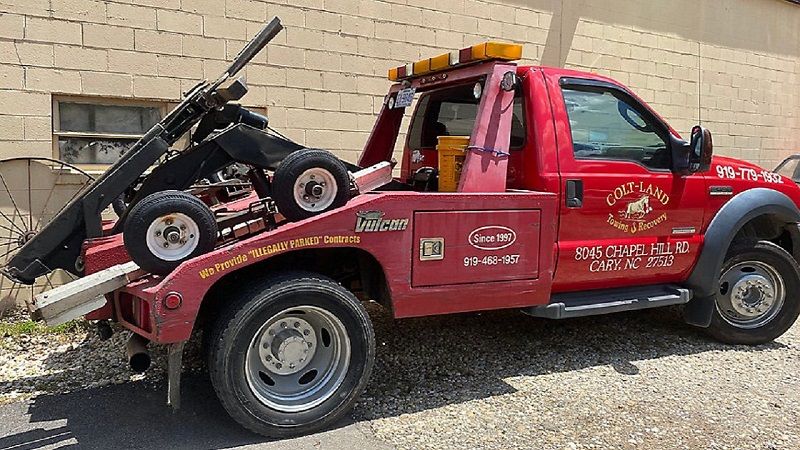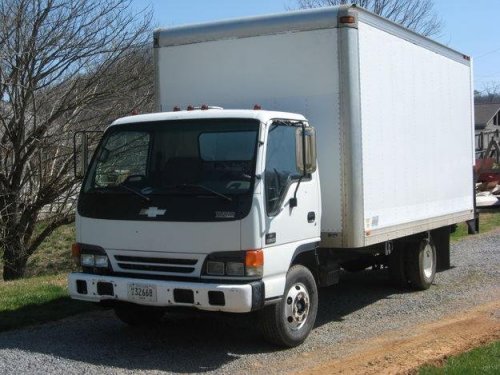Repossessed Pickup Trucks For Sale: Unearthing Value in Pre-Owned Powerhouses pickup.truckstrend.com
The rumble of a powerful engine, the versatility of a spacious bed, and the undeniable utility of a pickup truck make it an indispensable asset for countless individuals and businesses. Whether you’re a contractor needing a reliable workhorse, an outdoor enthusiast seeking adventure, or a homeowner tackling weekend projects, a pickup truck offers unparalleled capability. However, the price tag on a new truck can be daunting, pushing many buyers towards the pre-owned market. Among the various avenues for acquiring a used truck, the segment of repossessed pickup trucks for sale stands out as a unique, often overlooked, and potentially highly rewarding opportunity.
A repossessed pickup truck is simply a vehicle that has been seized by a lender (such as a bank, credit union, or finance company) due to the borrower’s default on their loan payments. Once repossessed, these trucks are then liquidated by the lender to recoup their losses, often through auctions, specialized dealerships, or direct sales. For the savvy buyer, this scenario presents a chance to acquire a much-needed truck at a significantly lower price than its typical market value, making the realm of repossessed pickups a compelling frontier for budget-conscious consumers.
Repossessed Pickup Trucks For Sale: Unearthing Value in Pre-Owned Powerhouses
Understanding the Landscape of Repossessed Pickup Trucks
The journey of a repossessed truck from a borrower’s driveway to a potential buyer’s garage is a process driven by financial recovery. Lenders are not in the business of holding onto vehicles; their primary goal is to liquidate these assets quickly to minimize financial loss. This urgency often translates into competitive pricing, which is the primary allure for buyers.
The condition of repossessed trucks can vary wildly. Some might be relatively new with low mileage and minimal wear, having been repossessed early in the loan term. Others could be older, higher-mileage vehicles that have endured years of use, potentially with deferred maintenance or cosmetic damage. This variability necessitates a cautious and informed approach from prospective buyers.
The Allure of a Repossessed Deal: Benefits Beyond Price
While cost savings are undoubtedly the headline benefit, several other advantages make exploring repossessed pickup trucks a worthwhile endeavor:
- Significant Cost Savings: This is the most compelling reason. Lenders prioritize speed over maximizing profit, often pricing these trucks below retail or even wholesale market value. This can translate to thousands of dollars in savings compared to purchasing a similar truck from a traditional used car dealership.
- Wide Variety of Options: The repossessed market isn’t limited to specific makes or models. You can find everything from light-duty half-ton trucks (like Ford F-150s, Chevrolet Silverados, Ram 1500s) to heavy-duty workhorses (F-250/350, Silverado/Sierra 2500/3500, Ram 2500/3500), across various model years and trim levels. This diversity increases your chances of finding a truck that perfectly matches your needs and budget.
- Quick Liquidation: Because lenders want to move these assets quickly, the buying process can sometimes be faster than traditional private sales or dealership purchases. This can be beneficial if you’re on a tight timeline to acquire a vehicle.
- Potential for High Value: With careful research and a thorough inspection, it’s possible to unearth a well-maintained truck that offers exceptional value for its price, providing reliable transportation or a capable work vehicle without breaking the bank.

Where to Find Repossessed Pickup Trucks for Sale
Knowing where to look is the first step in your repossessed truck hunt. Here are the primary avenues:

- Online Vehicle Auction Sites: These are perhaps the most common and accessible platforms. Websites like Copart, IAAI (Insurance Auto Auctions), and eBay Motors frequently list repossessed vehicles from various lenders. Government auction sites (e.g., GSA Auctions for federal vehicles) also list repossessed or surplus trucks.
- Bank and Credit Union Websites: Many financial institutions maintain a "repossessed assets" or "foreclosed properties" section on their websites. You might find listings for trucks directly from the lender, sometimes with more detailed information and potentially better financing options.
- Specialized Repossession Dealerships: Some used car dealerships specialize in acquiring and selling repossessed vehicles. These dealers often act as intermediaries, cleaning up the trucks and offering them with traditional dealership services, though often at slightly higher prices than direct auctions.
- Local Public Auctions: Police auctions, county auctions, or general public auto auctions in your area might feature repossessed trucks alongside other seized or surplus vehicles. Check local government websites or auction house listings.
- Online Marketplaces/Classifieds: While less common for direct repossessions, some individuals who purchased repossessed vehicles at auction might then list them on sites like Craigslist or Facebook Marketplace. Exercise extreme caution and verify ownership thoroughly in these instances.

The Buying Process: A Step-by-Step Guide
Purchasing a repossessed pickup truck requires diligence. Follow these steps to maximize your chances of a successful and satisfying purchase:
- Define Your Needs and Budget: Before you start looking, clearly outline what you need the truck for (e.g., towing, hauling, off-roading, daily commute). Set a realistic budget, including an allowance for potential repairs, maintenance, and reconditioning.
- Locate Potential Trucks: Utilize the resources mentioned above. Filter searches by make, model, year, and location.
- Thorough Research and VIN Check: Once you find a promising truck, get its Vehicle Identification Number (VIN). Use services like CarFax or AutoCheck to obtain a vehicle history report. This report can reveal accident history, previous ownership, odometer discrepancies, and service records. Crucially, it will also indicate if the truck has a "salvage," "rebuilt," or "flood" title, which can significantly impact its value and insurability. Avoid trucks with major title issues unless you are an expert in vehicle restoration.
- Crucial: Pre-Purchase Inspection (PPI): This is arguably the single most important step. If at all possible, arrange for an independent, certified mechanic to perform a comprehensive pre-purchase inspection. They can identify underlying mechanical issues, signs of neglect, fluid leaks, frame damage, and other problems that might not be visible to the untrained eye. If an in-person inspection isn’t feasible (e.g., distant online auction), proceed with extreme caution and factor in a larger repair contingency.
- Understand Auction Dynamics (If Applicable): If buying from an auction, familiarize yourself with their rules, fees (buyer’s premiums, documentation fees), payment methods, and "as-is" policies. Set a maximum bid and stick to it.
- Financing and Payment: If you need financing, get pre-approved before you bid or make an offer. Some lenders might offer financing on their own repossessed vehicles. Be prepared to pay quickly, often within 24-48 hours, especially for auction purchases.
- Complete Paperwork: Ensure all title transfer documents are correctly filled out. Verify that the lender is providing a clear title, free of any outstanding liens. This protects you from future legal complications.
Important Considerations Before You Buy
While the savings are appealing, there are critical factors to weigh:
- "As-Is" Sales: The vast majority of repossessed vehicles are sold "as-is," meaning there are no warranties or guarantees from the seller. You are buying the truck in its current condition, with all its existing flaws, known or unknown.
- Unknown History: Service records are often unavailable, making it harder to gauge past maintenance. A VIN check helps, but it won’t tell you everything.
- Condition Variability: Be prepared for anything. Some trucks will be gems, others will be money pits. The "as-is" nature means you bear the risk.
- Hidden Costs: Factor in auction fees, transport costs (if buying from a distant location), potential reconditioning (detailing, minor repairs), and the cost of any necessary mechanical repairs identified during a PPI.
- Title Status: As mentioned, avoid "salvage," "flood," or "rebuilt" titles unless you are fully aware of the implications and have the expertise to handle them. These titles can affect insurance rates and resale value.
Tips for a Successful Purchase
- Set a Hard Budget: And stick to it, even if a truck seems like an incredible deal. Always reserve funds for potential post-purchase repairs.
- Be Patient: The perfect truck might not appear immediately. Don’t rush into a purchase.
- Leverage Expertise: Bring a knowledgeable friend or, better yet, a mechanic to inspect the vehicle.
- Don’t Get Emotional: It’s easy to get caught up in the excitement of an auction or a seemingly great deal. Stick to your research and inspection findings.
- Check for Recalls: Use the VIN to check the manufacturer’s website for any outstanding safety recalls.
- Factor in Resale Value: While you’re buying at a discount, consider that the "repossessed" label, combined with an "as-is" purchase, might slightly impact your future resale value.
Potential Challenges and Solutions
| Challenge | Solution |
|---|---|
| Hidden Mechanical Issues | Solution: Prioritize a pre-purchase inspection (PPI) by an independent mechanic. Budget a contingency fund for potential repairs. |
| Cosmetic Damage & Neglect | Solution: Carefully assess the cost of repairs versus the savings. Decide if you’re willing to invest in reconditioning (paint, interior, minor bodywork). |
| Limited Access for Inspection | Solution: For online auctions, rely heavily on detailed photos, descriptions, and VIN reports. If you can’t physically inspect, consider if the potential savings outweigh the increased risk. |
| Complicated Paperwork/Title Issues | Solution: Confirm the seller (lender or auction house) can provide a clean, lien-free title. Ask questions about the process for title transfer and registration. |
| Auction Fees and Hidden Costs | Solution: Always ask for a full breakdown of all fees (buyer’s premium, documentation fees, etc.) before bidding. Factor these into your maximum budget. |
| Transporting the Vehicle | Solution: Research transportation costs in advance if buying from a distant location. Some auction sites offer shipping services, or you can arrange your own. |
Illustrative Pricing for Repossessed Pickup Trucks (Estimates)
The actual price of a repossessed pickup truck can vary wildly based on make, model, year, mileage, condition, location, and demand. The table below provides illustrative price ranges to give you an idea of potential savings compared to typical market values. These are rough estimates and should not be taken as definitive prices.
| Year | Make | Model | Estimated Repossession Price Range | Typical Used Market Price Range | Notes (Condition, Mileage) |
|---|---|---|---|---|---|
| 2018 | Ford | F-150 XLT | $18,000 – $28,000 | $22,000 – $35,000 | Mid-range mileage (80k-120k miles), good to fair condition, minor cosmetic flaws likely. |
| 2019 | Chevrolet | Silverado 1500 LT | $20,000 – $30,000 | $25,000 – $38,000 | Average mileage (60k-100k miles), potentially some wear and tear, might need new tires. |
| 2017 | Ram | 1500 Big Horn | $16,000 – $26,000 | $20,000 – $33,000 | Higher mileage (90k-130k miles), likely needs general servicing, interior wear possible. |
| 2020 | Toyota | Tacoma SR5 | $25,000 – $35,000 | $28,000 – $40,000 | Lower mileage (40k-70k miles), typically good mechanical shape, minor dings/scratches. |
| 2016 | GMC | Sierra 2500HD SLT | $25,000 – $40,000 | $30,000 – $50,000 | Heavy-duty, higher mileage (100k-150k miles), likely used for work, inspect for heavy use wear (brakes, suspension). |
| 2021 | Nissan | Titan SV | $28,000 – $38,000 | $32,000 – $45,000 | Relatively low mileage (30k-60k miles), good condition, often well-maintained as newer. |
| 2015 | Ford | F-350 Lariat | $22,000 – $38,000 | $28,000 – $48,000 | High mileage (120k-180k miles), heavy-duty, likely needs significant maintenance (injectors, transmission service). |
| 2019 | Honda | Ridgeline RTL | $23,000 – $33,000 | $26,000 – $38,000 | Mid-size, lower mileage (50k-90k miles), often more car-like, less likely to have heavy work abuse. |
| 2018 | Chevrolet | Colorado Z71 | $18,000 – $28,000 | $22,000 – $32,000 | Mid-size, average mileage (70k-110k miles), good for light duty or off-roading, check suspension/underbody. |
Note: These prices are highly speculative and depend on many factors. Always conduct your own research and get a professional appraisal if unsure.
Frequently Asked Questions (FAQ)
Q1: Are repossessed trucks reliable?
A1: Reliability varies greatly. Some are perfectly fine, while others may have hidden issues due to neglect or hard use. This is why a thorough pre-purchase inspection is absolutely critical.
Q2: Can I finance a repossessed truck?
A2: Yes, it’s often possible. Some banks and credit unions offer financing for their own repossessed vehicles. Third-party lenders may also finance them, though interest rates might be slightly higher due to the "as-is" nature of the sale.
Q3: Are repossessed trucks always cheaper than other used trucks?
A3: Generally, yes, they are priced below typical retail market value because lenders want to liquidate assets quickly. However, the final price depends on demand, the truck’s condition, and auction dynamics. It’s not guaranteed to be the absolute lowest price, especially if extensive repairs are needed.
Q4: What does "as-is" mean for a repossessed truck sale?
A4: "As-is" means the vehicle is sold in its current condition, with no warranties or guarantees from the seller (the lender or auction house). You, the buyer, assume all responsibility for any defects or needed repairs after the purchase.
Q5: How do I check the history of a repossessed truck?
A5: Always run a Vehicle Identification Number (VIN) check using services like CarFax or AutoCheck. These reports can provide valuable information on accident history, mileage discrepancies, title status (salvage, rebuilt), and sometimes service records.
Q6: What documents do I need to buy a repossessed truck?
A6: You’ll typically need a valid ID, proof of funds or loan pre-approval, and potentially a buyer’s registration for auctions. After the sale, you’ll receive a title (or equivalent proof of ownership) which you’ll need to register the vehicle in your name and pay sales tax. Ensure the title is clear and lien-free.
Q7: Can I return a repossessed truck if I find problems later?
A7: Almost never. Due to the "as-is" nature of these sales, returns are typically not permitted unless there’s a significant misrepresentation of the vehicle’s title (e.g., a "clean" title turns out to be "salvage"). This reinforces the importance of pre-purchase inspection.
Conclusion: Driving Value Home
The market for repossessed pickup trucks for sale offers a compelling avenue for those seeking significant savings on a vital vehicle. While the allure of a lower price is undeniable, success in this unique segment hinges on a well-informed, cautious, and diligent approach. By understanding where to look, diligently researching each potential candidate, prioritizing a professional pre-purchase inspection, and being aware of the "as-is" nature of these transactions, buyers can navigate the challenges and unlock remarkable value. A repossessed truck isn’t just a vehicle; it’s a testament to the power of smart buying, transforming a lender’s loss into a buyer’s gain and putting a capable, often powerful, workhorse into your hands for less.



